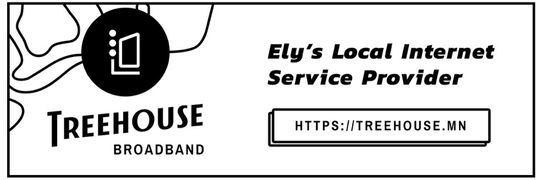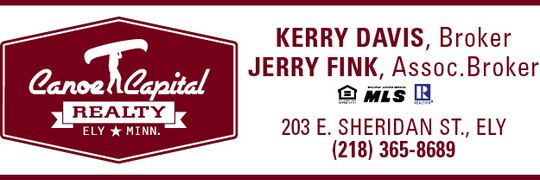After trimming better than half of a $477,000 deficit through a series of reductions earlier this year, Ely school officials may look for new sources of revenue to balance the district budget.
The options include a potential capital project levy that could be up for voter approval as soon as this fall.
Further details and a recommendation from administrators are expected at a special board meeting slated for Aug. 5, but school board members got a look at some ideas Monday, during the monthly board study session.
A presentation by representatives from Ehlers Public Finance Advisors showed the potential impacts of a levy that would generate new revenue ranging from $350,000 to $425,000 for the district, capturing revenue not only from residential and commercial properties but seasonal and recreational properties, which amount to just over a third of the district tax base.
School board member Tom Omerza stopped short of asking for a recommendation during brief discussion Monday, but noted the difficulty school officials had in making about $250,000 in budget adjustments this year.
“We went a little bit conservative,” said superintendent and K-12 principal Anne Oelke. “But with us deficit spending this year, without bringing in more revenue we’re going to have to go in and cut more. We would have to cut unless we can find like 30 new students, which we are going to continue to try and aggressively go after as well.”
A capital project levy allows districts to use those funds for an assortment of expenditures, ranging from technology and various capital projects.
Funds generated through the levy could be used to make those purchases, while offsetting general fund money that would otherwise be used.
“We’ve identified a whole list of things we could use it for, and whatever (levy dollar amount) we do pick, it would free that much money up out of our general fund,” said Oelke.
While no formal proposal has been advanced, the Ehlers presentation showed that a $350,000 capital project levy would raise property taxes by $22 on a $100,000 residential property or $61 on a $200,000 home.
A $425,000 levy would result in a $27 tax hike on a $100,000 home or $75 for a $200,000 home.
Advisors Beth Downes and Jodie Zesbaugh of Twin Cities-based Ehlers showed that the Ely district has a market value of just over $864 million, with residential homesteads comprising 40 percent of the tax base and seasonal recreational making up the next largest chunk - at 34.2 percent.
But seasonal recreational properties are currently exempt from operating levies, putting the largest share of those school taxes on residential and commercial properties.
The school board has the authority to review an existing operating levy of about $335 per student, which produces about $175,000 in annual funds for the district. That renewal, good for 10 years, can come anytime between now and 2026 and may be approved next month.
The capital project levy, however, requires voter approval and the special meeting on Aug. 5 could trigger quick action to put the issue on the ballot in November.
According to the presentation, current school taxes in Ely on a $200,000 home are $507 per year, smack in the middle in a comparison of nine area districts, which range from $212 (Mt. Iron-Buhl) to $999 (Nashwauk- Keewatin).
Ely is slightly behind Rock Ridge ($570) and Mesabi East ($572).
Board member Tony Colarich and Omerza both addressed the possibility of seeking further taxpayer support.
“We asked the public for $10 million for facilities and it was a really good deal as it leveraged a whole pile of additional money (and) it was a real need,” said Colarich. “Now we’re going back to the public to extend (the operating levy) and it’s not going to cost them anything more. Then we’re going to go with this capital project levy.”
Omerza added “what got us a yes last time was good communication.”
“Everybody had access to the information,” said Omerza. “I think this is the same thing. We say ‘here’s what’s happening and here’s what’s happening statewide with education.’ We’re in the same boat as a lot of other school districts and here’s why we are asking for more money.”
Oelke said the district may have few other options.
“If it doesn’t pass we go to the cutting board and we try again,” she said.
.jpg)









